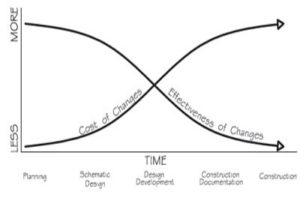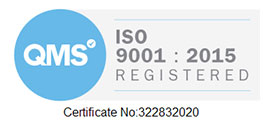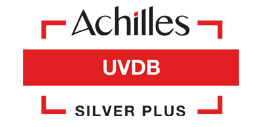How Can an Electrical Engineering Consultant Help?
A question that is often asked by people is: “What does an electrical engineering consultant actually do?”, or ” Don’t you just write reports?”, ” Don’t you charge a lot of money to come up with something that doesn’t have any conclusions?”. These questions are fairly common, and sometimes are entirely justified, as many consultants have been known to over complicate things, be evasive on specific advice or not understand / appreciate the practical or cost constraints on a project. While some of the above criticisms are undoubtedly true, most modern consultants have moved away from the bad old days.
So why is it a good idea to engage a consultant and if you are thinking about using one, when should you engage one? The most honest answer to the first question is ‘if you don’t have the in-house skills to confidently tackle the design!’. The answer to the second question is ‘early!!’ The reason for this is, is that for most projects, the equipment cost, construction cost and financial risks involved are usually very significant. Late changes in design or site modifications can lead to rapidly escalating costs and delays to a project. Consider for a minute the well known project curve, shown in the figure below:
The curve shows, what most people understand intuitively, the earlier a design change is made the cheaper and easier it is to make. While even a small change at the last minute can have significant consequences. In practice what this means is that is important to develop a good design upfront, that has identified all of the main technical issues, designed out risk and ensure that when it is energised it works as predicted. Another key factor is to ensure that there have been enough design documents produced that the site construction team are not left confused, or faced with having to make tricky field modifications.
So how does this relate to a consultant? Well, in two ways. Firstly, an engineering consultant’s fees are generally a very small percentage of the overall project cost, therefore engagement with one will not significantly affect the project cost and can usually help keep project timescales on track. Secondly, consultants by their nature, usually have a very broad experience base, this means that they can spot and pre-empt design issues at an early stage, so as to prevent them becoming a major headache at a later stage.
In Aurora’s view, good consultants are a bit like good accountants – they should always save you more money than they cost!
Types of Consultancy
So now we have defined what a large power system is, let’s think about what an electrical engineering consultant does and why they might be needed. Most issues, can be roughly split into two categories – reactive and proactive.
Proactive Consultancy
Proactive activities generally relate to planned upgrades and developments of an electrical system – this can be something like a company planning to expand their existing facilities to add a set of large power consumers, such as pump or compressors, and wanting to be sure that the system can support it. This area also covers things like condition assessment of existing equipment, and planning to replace the existing equipment with more modern equipment – but doing so in a manner that does not affect the operation of the existing site.
The reason that carefully planning a design is important, are summarised below.
First – safety! Large electrical power users and equipment, carry inherent risks in their design and operation. It is very easy to keep adding to an existing facility, not realising that equipment may no longer be able to operate satisfactorily. In best cases, this can lead to unexpected outages of equipment due to overloads, and in worst cases, a failure can lead to major loss equipment or injury of personnel.
Second – Money! The cost of power electrical equipment and grid connections is usually very high for all but the most basic of projects, while the cost of a consultant is usually very low (comparatively). So, by carrying out a design, or design validation early on – many problems can be resolved at the design stage before equipment has been purchased, or construction started. If a study is carried out too late, it can sometimes identify a problem that can be very expensive to fix or lead to a major delay in a schedule.
Third – Risk! Another, important reason to use a consultant is that they will be able to provide a ‘cold eyes’ review of the design, picking up issues that may have been overlooked. Consultants are also usually specialists in this area and see a high volume of similar projects, this means they will be very familiar with common problems encountered on a system and can help a company avoid the ‘unknown’ unknowns’.
Reactive Consultancy
Reactive consultancy is generally in relation to a problem that a Client or site is having. This is often a lot wider ranging in nature, but can include things such as overloaded utility supplies, excessive electricity bills, premature failure of equipment, nuisance tripping of protection relays, restrictions and letters sent by the utility company / DNO, poor power factor and poor performance of equipment. There are of course lots of different types of problems that can occur on a site, but the above are some of the most common ones.
By its nature, reactive consultancy is a lot more urgent as problems can be leading to significant financial loss, delays or embarrassment / PR problems for the company concerned. A consultant is therefore usually tasked with 2 things – firstly, solve the immediate problem to get power on and a temporary fix sorted and then secondly to carry out an investigation into what went wrong and why it went wrong.
The Aurora Approach
At Aurora we are a general electrical engineering consultant, and cover a wide range of activities – for ease we split our professional services into four areas. These are Power System Analysis, Design, Earthing and General Consultancy. Power System analysis refer to very specific studies carried out to validate a system design, the different types of studies are discussed in this blog post. Electrical design, is more general in nature and covers any kind of specific detail or conceptual design to a power system – the basics of electrical design are covered in this blog post. Earthing is a very complex subject area in its own right – this is discussed further here. Lastly, there is general consultancy, which is for anything that doesn’t fit into the other categories and is the subject of this blog post you are reading.
We hope that this post has given a general overview of what an electrical engineering consultant does, and how they can potentially help your business. As with all engineering, it is often better to react proactively, rather than reactively when you are in the middle of a crisis!
Please contact Aurora if you would like to know more, or to discuss your project requirements.




